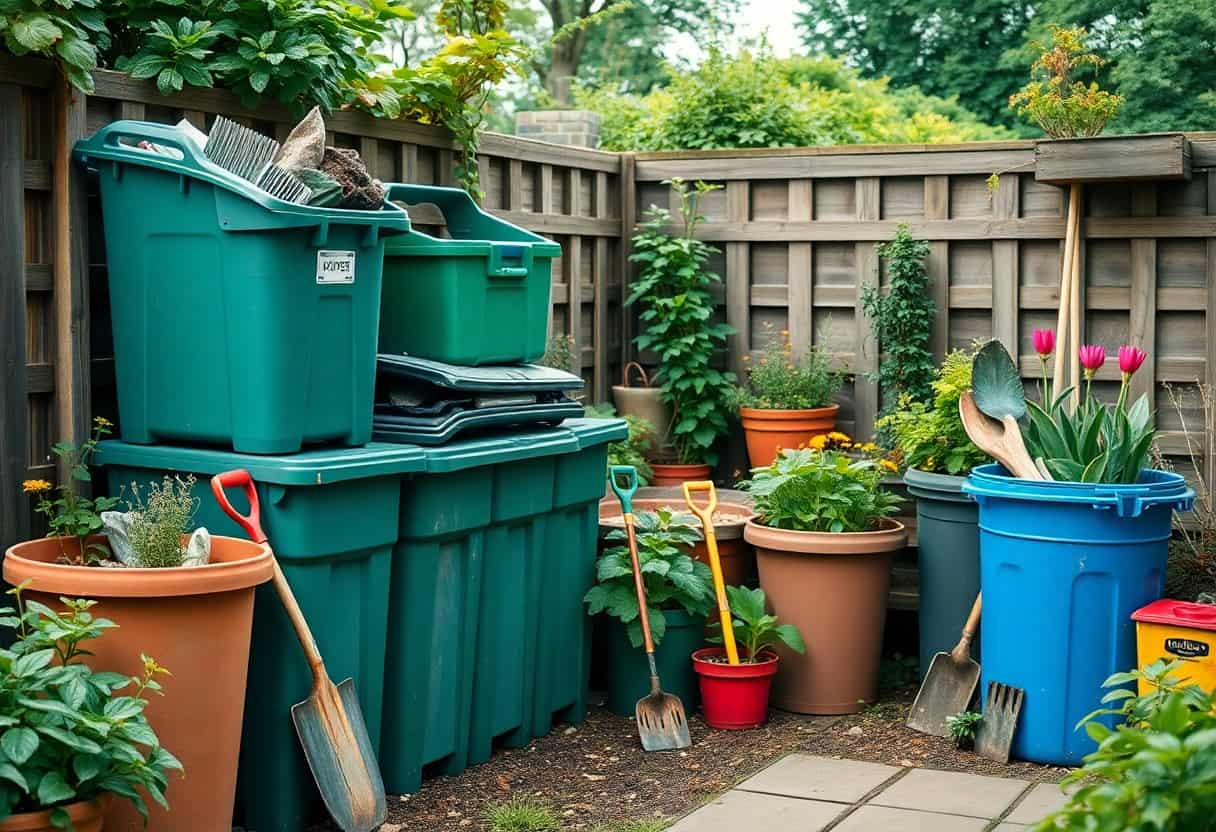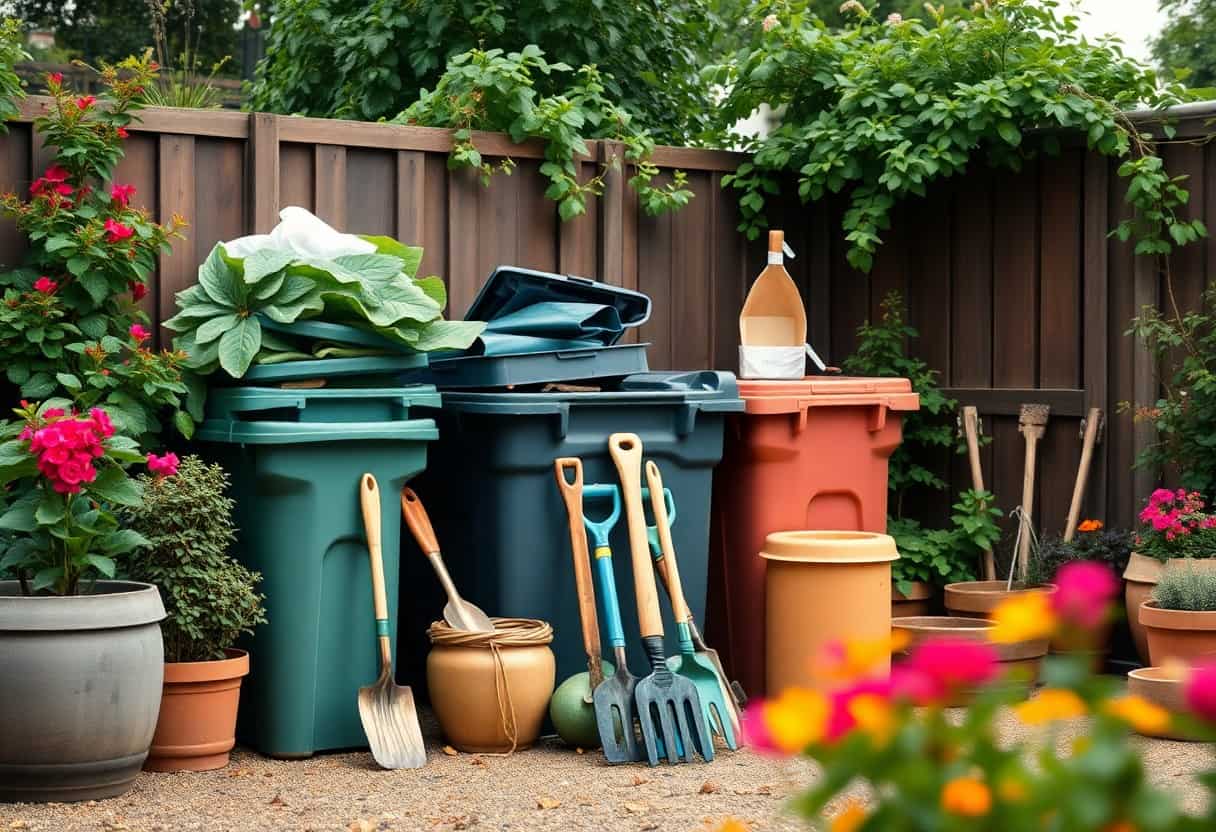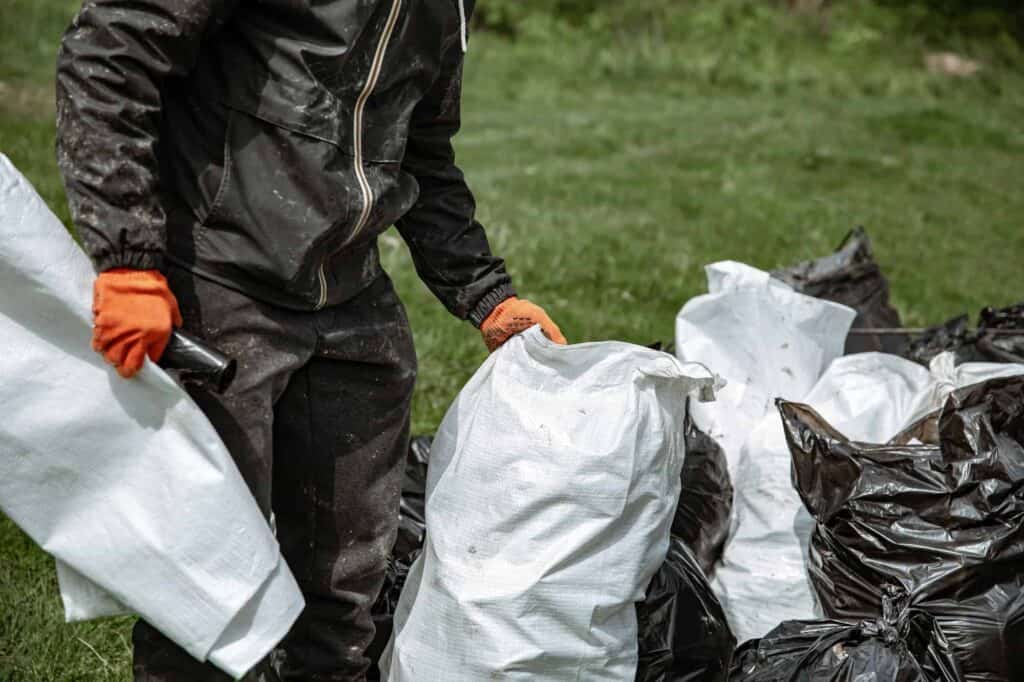Many homeowners in Surrey are looking to create beautiful gardens while being environmentally conscious. To minimise waste during your garden clearance, you need to assess your green waste options and consider recycling and composting where possible. By planning ahead and utilising local resources, you can efficiently clear your garden while also benefiting the planet. This guide will provide you with practical steps to make your garden clearance both effective and eco-friendly.
Understanding Waste Minimisation
The process of waste minimisation involves reducing the volume and toxicity of waste created during activities like garden clearance. By implementing effective strategies, you can significantly lessen your environmental footprint while simultaneously saving resources. Adopting these practices not only promotes sustainability but also enhances the aesthetics and overall health of your garden.
Importance of Minimising Waste
If you prioritise minimising waste during your garden clearance, you contribute positively to the environment, conserve resources, and can even save money. It fosters better practices within your community and encourages a more sustainable approach to gardening.
Environmental Factors to Consider
If you want to grasp the full impact of your garden clearance, consider several environmental factors that play a vital role in waste minimisation:
- Soil health – maintaining healthy soil reduces the need for chemical inputs.
- Biodiversity – promoting diverse plant species enhances ecosystem resilience.
- Water usage – efficient watering techniques conserve precious resources.
The choices you make can either harm or benefit your local ecosystem.
Waste management is a significant component of an environmentally responsible garden clearance. Focusing on reducing waste impacts your surroundings positively in several ways:
- Composting – transforming organic waste into nutrient-rich compost reduces landfill contributions.
- Reuse – giving new life to items that would otherwise be discarded diminishes waste.
- Recycling – diverting materials from waste can reduce resource extraction.
The overall aim is to foster a more sustainable environment, ensuring that your gardening practices are responsible and beneficial for future generations.

How to Assess Your Garden Waste
While begining on a garden clearance project in Surrey, you must first assess your garden waste thoughtfully. Take note of the types and quantities of waste you have accumulated. Prioritising effective disposal is key, and seeking Professional Garden Clearance Services in Surrey can simplify this process and ensure responsible disposal.
Categorising Your Green Waste
While sorting through your garden waste, categorising it can help streamline the clearance process. Separate organic material, such as leaves and branches, from non-biodegradable items like plastic and metal. This approach enables easier recycling and reduces landfill waste.
Identifying Reusable Materials
With proper assessment, you may uncover materials that can be repurposed or reused in your garden. Look for items such as wooden pallets, stones, or even garden furniture that needs a little TLC. By reusing these materials, you not only save money but contribute to a more sustainable garden environment.
Assess your disposal options carefully. Wooden pallets can be transformed into compost bins or garden beds, while stones may serve as effective pathways and borders. Additionally, garden furniture might only require a quick refurbishment to enhance your outdoor space. By identifying these reusable materials, you minimise waste and promote a more sustainable approach to your garden clearance.
Effective Disposal Methods
It is imperative to explore effective disposal methods to minimise waste during your Surrey garden clearance. You can learn about the various approaches available by visiting What are the different garden waste removal solutions?. By following proper disposal techniques, you will not only reduce waste but also contribute to a cleaner environment.
Composting Techniques
Any organic waste from your garden can be transformed into nutrient-rich compost. Set up a compost bin to collect kitchen scraps, grass clippings, and leaves, which will naturally decompose over time. This eco-friendly solution reduces landfill waste and enhances your garden’s soil quality.
Recycling Options Available
Assuming you have substantial garden waste, it’s beneficial to consider local recycling facilities which accept green waste.
With a variety of options for recycling, you can efficiently dispose of branches, grass cuttings, and other waste types. Check your local council’s guidelines, as many offer kerbside collection for green waste, or you can take it to a nearby waste transfer station. This helps in reducing landfill contributions and supports the circular economy by ensuring valuable materials are reused and recycled effectively. Engaging in recycling not only benefits your garden but also the broader community.
Tips for Reducing Waste During Clearance
After planning your garden clearance, consider implementing these tips to reduce waste effectively:
- Sort items into recyclables, donatables, and disposal
- Compost organic waste to improve soil
- Offer usable items to charities
- Utilise local recycling facilities for non-recyclables
After following these tips, you can have a more sustainable clearance. For more detailed strategies, check out our Guide to Minimizing Waste in House Clearance.
Planning Ahead
The best way to ensure your garden clearance is efficient is to plan ahead. Make a list of what needs to be cleared and set aside specific times for each task. This way, you can assess what can be recycled, reused, or composted, ultimately leading to less waste produced during the process.
Using Eco-Friendly Tools
Clearance activities can often lead to unnecessary waste, but using eco-friendly tools can make a significant difference.
Plus, opt for biodegradable bags and non-toxic cleaning products to minimise your environmental impact. Consider using tools made from sustainable materials to reduce waste. Additionally, selecting battery-operated or manual tools over fuel-powered equipment cuts down on emissions. By embracing these choices, you contribute to a healthier garden atmosphere while still achieving effective clearance results.

Collaborating with Local Services
To enhance your efforts in minimising waste during a Surrey garden clearance, consider collaborating with local services. Engaging with nearby organisations not only streamlines disposal but also promotes sustainability. By utilising community resources, you can ensure that your garden waste is managed efficiently and responsibly.
Waste Collection Services
Waste collection services in your area can significantly reduce the burden of clearing your garden. Many local councils offer scheduled pick-ups for green waste, which allows you to dispose of organic material without hassle. Be sure to verify the guidelines regarding what can and cannot be included to optimize your collection.
Community Recycling Initiatives
Any engagement with community recycling initiatives can be immensely beneficial for your garden clearance. Local groups often organise events aimed at recycling garden materials such as plants, soil, and even garden furniture. Participating in these initiatives reduces waste and fosters community spirit.
To take full advantage of community recycling initiatives, actively seek out local events or groups dedicated to recycling garden waste. These initiatives often encourage the reuse of materials, allowing you to pass on items that may otherwise contribute to landfill. By participating, you not only help reduce landfill impact but also support local efforts to create a more sustainable environment, benefiting both your community and the planet.
Maintaining a Sustainable Garden Post-Clearance
Unlike many gardens that fall into disrepair after a clearance, you can establish a robust plan for sustainability. This approach ensures that your garden remains thriving and beneficial to the environment. By embracing eco-friendly practices and products, you can cultivate a garden that reflects your commitment to sustainability and reduces future waste.
Sustainable Practices
An excellent way to start is by incorporating organic compost and natural fertilisers. These alternatives to chemical products not only nourish your soil but also promote biodiversity by encouraging beneficial insects and microorganisms. You should also consider planting native species, as they are better adapted to your local environment, require less water, and attract pollinators.
Long-Term Waste Reduction Strategies
Maintaining a sustainable garden involves implementing effective long-term waste reduction strategies. By planning your garden layout wisely and choosing plants that complement each other, you can minimise waste and maintenance efforts. Regularly assessing your garden’s needs will help you reduce excess materials and avoid unnecessary purchases.
A successful long-term strategy includes creating a composting system for your kitchen scraps and garden waste. This practice greatly reduces the amount of waste sent to landfills, while enriching your soil with nutrients. Rotating crops annually can also help in preventing soil depletion and pest outbreaks, ultimately leading to a healthier garden ecosystem. Additionally, investing in quality tools will prolong their use and minimise the need for disposables. By adopting these sustainable practices, you not only enhance your garden’s health but also contribute positively to the environment.
To wrap up
Presently, minimising waste during your Surrey garden clearance involves careful planning and execution. You should assess your garden’s materials, making a distinction between what can be reused, recycled, or composted. Consider donating usable items to local charities or friends, and employ a skip for larger items requiring disposal. Additionally, by investing in biodegradable bags for garden waste, you can ensure an environmentally friendly approach. By taking these steps, you can effectively reduce waste and contribute positively to the environment while enjoying a clean, organised garden space.
FAQ
Q: What steps can I take to reduce waste during a garden clearance in Surrey?
A: To minimise waste during your garden clearance, start by assessing your garden and identifying plants that can be reused or repurposed. Consider composting organic materials such as leaves and small branches instead of sending them to landfill. You can also donate healthy plants or excess garden furniture to local charities or community gardens. When disposing of garden waste, choose a local recycling centre that accepts green waste, and explore the option of hiring a service that prioritises recycling.
Q: How can I effectively compost garden waste?
A: Composting garden waste is an efficient way to reduce the volume of rubbish sent to landfill. Begin by setting up a compost bin in a suitable location within your garden. Use a mix of green materials, like grass clippings and green leaves, along with brown materials, such as dried leaves and cardboard. Ensure you turn the compost regularly to promote decomposition, and keep the bin moist but not too wet. In a few months, you will have nutrient-rich compost that can be used to enhance your soil.
Q: Should I hire a professional service for garden clearance to manage waste more effectively?
A: Hiring a professional garden clearance service can indeed help in managing waste more efficiently. Many of these companies prioritise eco-friendly practices, often recycling a significant portion of the waste they collect. They usually have the tools and expertise to sort through materials and ensure that as little as possible ends up in landfill. When choosing a service, ask about their recycling policies to ensure they align with your waste minimisation goals.
Q: What can I do with unwanted plants or garden furniture to avoid waste?
A: Unwanted plants can often be divided and shared with friends or neighbours, or donated to local gardening clubs and charities that accept plant donations. For garden furniture, consider selling it online or through community platforms, or giving it to local charity shops. If the items are beyond repair, check if there are recycling facilities that accept these materials. Creative reuse, like transforming furniture into planters, is another excellent way to minimise waste.
Q: What types of garden waste can be recycled, and how do I find a local facility?
A: Garden waste that can typically be recycled includes grass clippings, leaves, small branches, and plant cuttings. Many local councils in Surrey offer green waste collection services or have designated recycling centres for garden waste. To find a local facility, visit your council’s website or contact their waste management department for specific details on locations and types of materials accepted. This ensures you are disposing of your garden waste responsibly and contributing to local recycling efforts.



